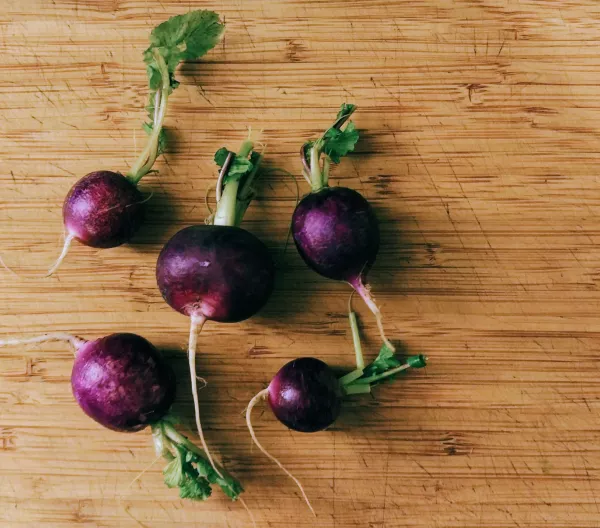Can ultra-processed foods be healthy?

AminaDesign - stock.adobe.com.
This content is free. Because CSPI takes no corporate or government donations, we rely on supporters like you to fuel our content. Donate now. |
Frozen pizza, hot dogs, chicken nuggets, instant soups, sweets, margarine. They’re just a few foods that fall into the “ultra-processed” group, which studies have linked to heart disease, type 2 diabetes, some cancers, and more. But are all ultra-processed foods unhealthy? Here’s a closer look.

Nutrition Action’s Bonnie Liebman spoke with Walter Willett, professor of epidemiology and nutrition at the Harvard T.H. Chan School of Public Health, who has published more than 2,000 studies on diet, disease, and more.
Q: Is it surprising that ultra-processed foods are linked to many illnesses?
A: No, because sugar-sweetened beverages and processed meats are among the most common foods in the ultra-processed group.
And the group also includes what we would call junk foods, which are basically made with refined starch or added sugars. Without question, those foods are not good for us.
But it would be a mistake to label foods that meet the ultra-processed definition and say “Avoid those foods and everything else is okay.”
Q: Why?
A: The current definition, according to the NOVA system that is used by most studies, includes some healthy foods and leaves out many foods that are not good for us.
For example, whole-grain breads, whole-grain breakfast cereals, and yogurt with a bit of added sugar are called ultra-processed, but they are related to a lower risk of many health problems in our studies.
There’s also misclassification in the other direction. The definition says that some foods are ultra-processed if they’re made in a factory but not if they’re made outside of a factory.
Where a food is made doesn’t have much to do with health or illness. White bread is unhealthy even if it comes from a local bakery. And you can make some horrible stuff at home.
The traditional Western diet is high in red meat, high in dairy, and low in fruits and vegetables. Even if it had zero ultra-processed foods, it would still be one of the unhealthiest dietary patterns we see.

Q: Is ultra-processed plant-based meat and dairy healthier than actual meat and dairy?
A: We desperately need to cut down on red meat to curb greenhouse gas emissions, and the best alternatives—for our health and the planet’s—are beans, tofu, and nuts.
But we can’t expect everybody to move from red meat to beans and nuts. And many ultra-processed plant-based alternatives to meats and dairy are higher in healthy fats, so they should help lower LDL—or bad—cholesterol and the risk of cardiovascular disease.
Q: Do the additives or contaminants in ultra-processed foods matter?
A: They may. We should take a critical look at some of the emulsifiers. But many additives are clearly safe, and some of them keep food from spoiling.
It’s sometimes said that acrylamide may help explain why ultra-processed foods are linked to cancer in animal studies. It forms when starchy foods are baked, fried, or roasted.
But you can make acrylamide in your kitchen just by making toast. And one of the biggest sources of acrylamide is coffee, which is consistently linked to better health outcomes.
Q: What’s the bottom line?
A: It’s a real problem that a huge part of what Americans eat—an estimated 57 percent of calories—is overly processed. But the current definition of ultra-processed foods can stigmatize foods that are good for us.
Diets are complicated. There’s no single label that captures all of the complexity.
The big picture
In a single clinical trial, people gained 2 pounds when offered a diet of mostly ultra-processed foods for 2 weeks and lost 2 pounds when offered unprocessed foods. (They ate 500 calories more per day on the ultra-processed diet.) More trials are underway to determine what feature of the ultra-processed diet led people to eat more.
But most studies on ultra-processed foods aren't clinical trials. Instead, they look for links between what people typically eat and their later risk of illness. So something else about people who load up on ultra-processed foods could explain their higher risks.
What's more, most studies lump all ultra-processed foods together. But in the few studies that looked at separate food categories, the results varied.
In men, women, or both, a higher risk of outcomes like type 2 diabetes, colorectal cancer, gallstones, or dying prematurely was often linked to:
- ready-to-eat meat, poultry, and seafood
- sugar-sweetened and artificially sweetened beverages
In contrast, in some studies, a lower—or no higher—risk of most of those outcomes was linked to:
- whole-grain breads and cereals
- yogurt and dairy desserts
It’s too early to know if those findings will hold up as more studies look at separate categories of ultra-processed foods and we learn more about the potential harms of suspect contaminants and additives.
Until then, fill half your plate with fruits and vegetables. And don’t toss out all your ice cream and chocolate. People who eat no more than 3 to 4 ultra-processed foods a day typically have the lowest risk of illness.
Support CSPI today
As a nonprofit organization that takes no donations from industry or government, CSPI relies on the support of donors to continue our work in securing a safe, nutritious, and transparent food system. Every donation—no matter how small—helps CSPI continue improving food access, removing harmful additives, strengthening food safety, conducting and reviewing research, and reforming food labeling.
Please support CSPI today, and consider contributing monthly. Thank you.

Let's stay in touch
Get our (free) healthy tips
Our free Healthy Tips newsletter offers a peek at what Nutrition Action subscribers get—scrupulously researched advice about food of all kinds, staying healthy with diet and exercise, and more.

